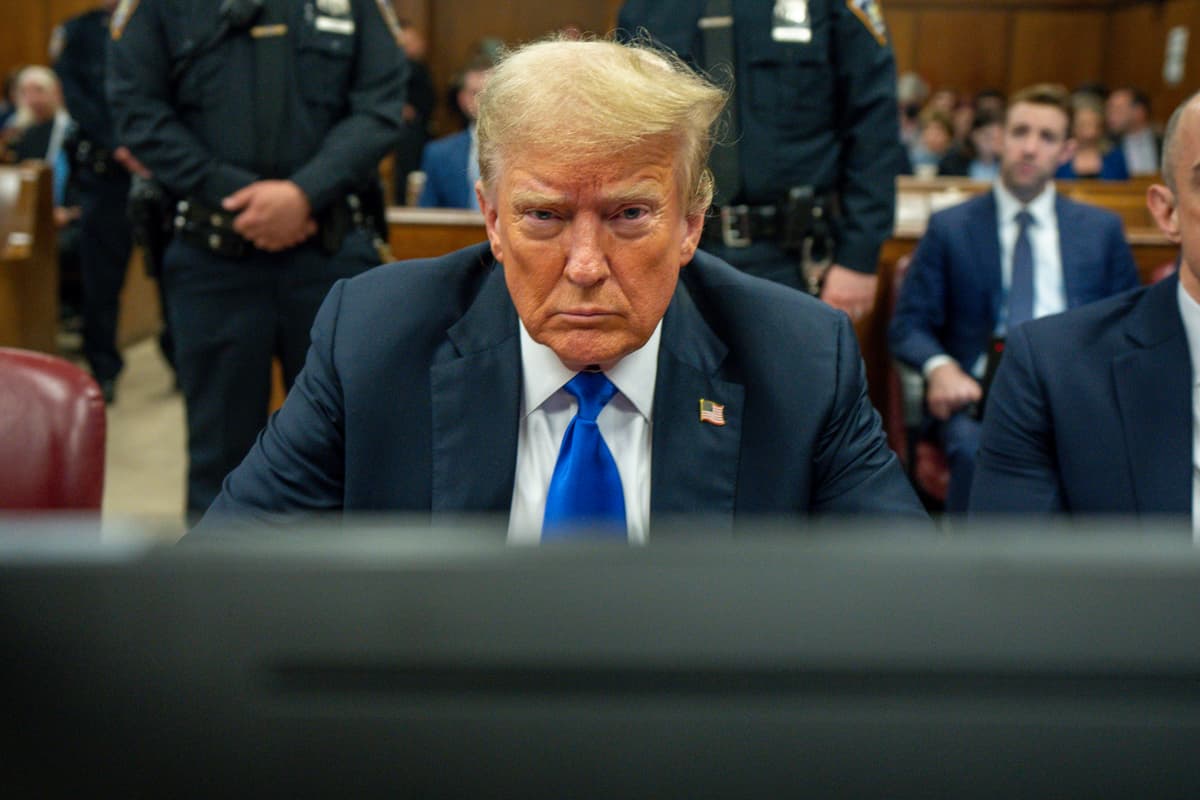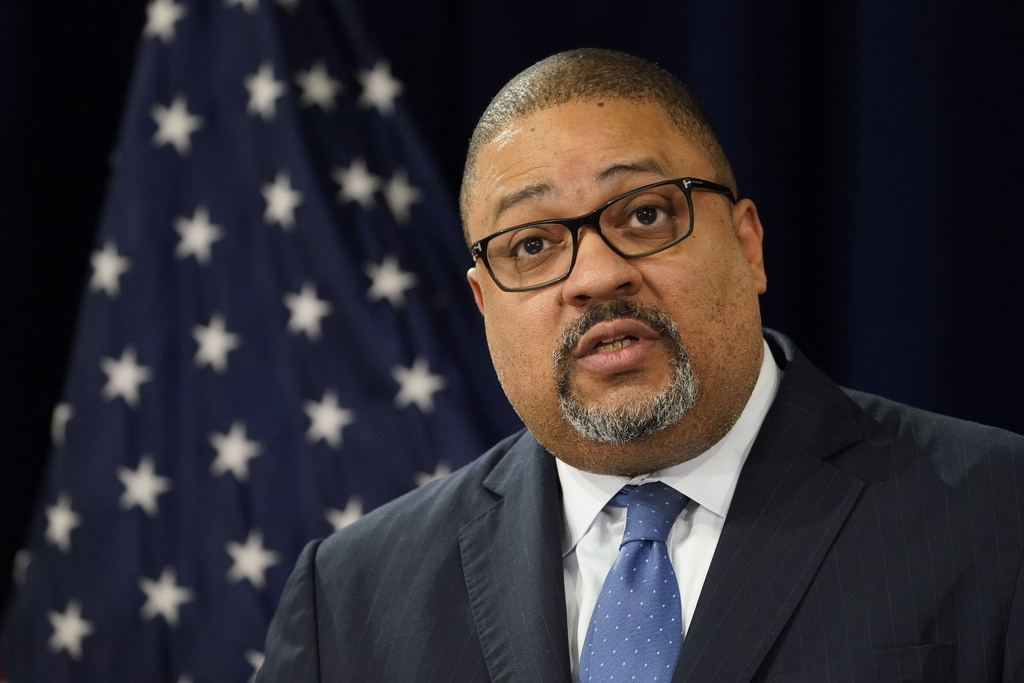Trump’s Showdown With Alvin Bragg Heats Up as Appeals Deadline Nears To Reverse Felony Convictions in Stormy Daniels Case
The 47th president is — for now — the first to be a convicted felon.

President Trump and his legal team at the elite firm of Sullivan & Cromwell have a deadline of October 27 to lay out their best arguments for why the 47th president’s 34 felony hush money convictions, won by his nemesis, District Attorney Alvin Bragg, ought to be overturned.
The high-stakes appeal, if successful, could render as obsolete Mr. Trump’s dubious distinction of being the first president ever to also be a convicted felon. While the 47th president will serve no prison time — Judge Juan Merchan sentenced him to an “unconditional discharge,” no punishment beyond the stain of the conviction — reversing the verdict would be another signature achievement in his effort to strike back at his prosecutors.
The appeal will be lodged at New York’s intermediate appellate court. In August that same tribunal wiped away the $500 million fraud penalty imposed by Judge Arthur Engoron in the civil lawsuit brought by New York’s attorney general, Letitia James. The appellate judges ruled that the sum was so staggering that it violated the Constitution’s prohibition of “excessive fines.” Both Mr. Trump and Ms. James, who like Mr. Bragg is an elected Democrat, have appealed.

Now Mr. Bragg will have to defend his landmark conviction. In 2024 a jury brought in verdicts of “guilty” on every count in the case that turned on payments made during and after the 2016 election to the adult film performer Stormy Daniels, whose real name is Stephanie Clifford. Those payments, totaling some $130,000, were the remit of Mr. Trump’s erstwhile attorney, Michael Cohen, now an adversary.
Ms. Clifford claims she had a sexual encounter with Mr. Trump in 2006 at a beauty pageant event at Lake Tahoe. She has written a New York Times bestselling memoir, “Full Disclosure,” about the assignation and leveraged her notoriety into a national strip club tour. The president denies her accusations. He declared, “I never had sex with a porn star,” during his debate in 2024 with President Biden.
While falsification of business records in New York is a misdemeanor, Mr. Bragg hit on the notion of arguing that the falsification was conducted with an eye toward committing a second crime. The government never articulated what that second crime might be. Judge Merchan, though, instructed the jury members that they need not agree on the nature of that second crime.
Mr. Trump raged at Judge Merchan for the entirety of the trial. He pointed to small donations totaling some $35 that the judge made in 2020 to Democrats, including President Biden, Mr. Trump’s opponent. Judge Merchan’s adult daughter, Loren, served as a political consultant for Democrats, counting Vice President Kamala Harris and Senator Adam Schiff, then a congressman, as clients. Mr. Trump unsuccessfully pushed for Judge Merchan to recuse himself and for the case to be moved to federal court.
Mr. Trump has also tried to argue that the Supreme Court’s ruling in Trump v. United States — holding that official presidential acts, as distinct from unofficial ones, are presumptively immune from prosecution — bars Mr. Bragg’s entire prosecution. Judge Merchan disagreed, finding that the core of the case concerned “private acts” not related to the heart of presidential authority and responsibility.
Judge Merchan reckoned that adopting Mr. Trump’s position that his social media posts are protected “would effectively mean that every statement ever uttered (or posted on social media) by a sitting President, whether personal or official, in his or her own interests or that of the Country, would be protected by absolute immunity.”
The federal judge, Alvin Hellerstein, 91, who denied Mr. Trump’s bid to move the court to federal court — a more friendly venue for the president than Manhattan — came to the same conclusion. He found that the “hush money payments were private, unofficial acts, outside the bounds of executive authority.” The question of presidential immunity is a federal issue, meaning that it could conceivably be heard on appeal by the Supreme Court.
First, though, Mr. Trump will be required to exhaust his appellate options in New York state court. That process could percolate even as Mr. Bragg is set to run for re-election next year as Manhattan’s top prosecutor. Federal prosecutors contemplated bringing a version of the case tried by Mr. Bragg’s office, but eventually declined — though the Department of Justice did prosecute Cohen. Mr. Bragg’s predecessor as district attorney, Cyrus Vance Jr., also declined to charge Mr. Trump.
A spokesman for Mr. Trump, Steven Cheung, declares in a statement that “this lawless case should have never been brought, and the Constitution demands that it be immediately dismissed.”

